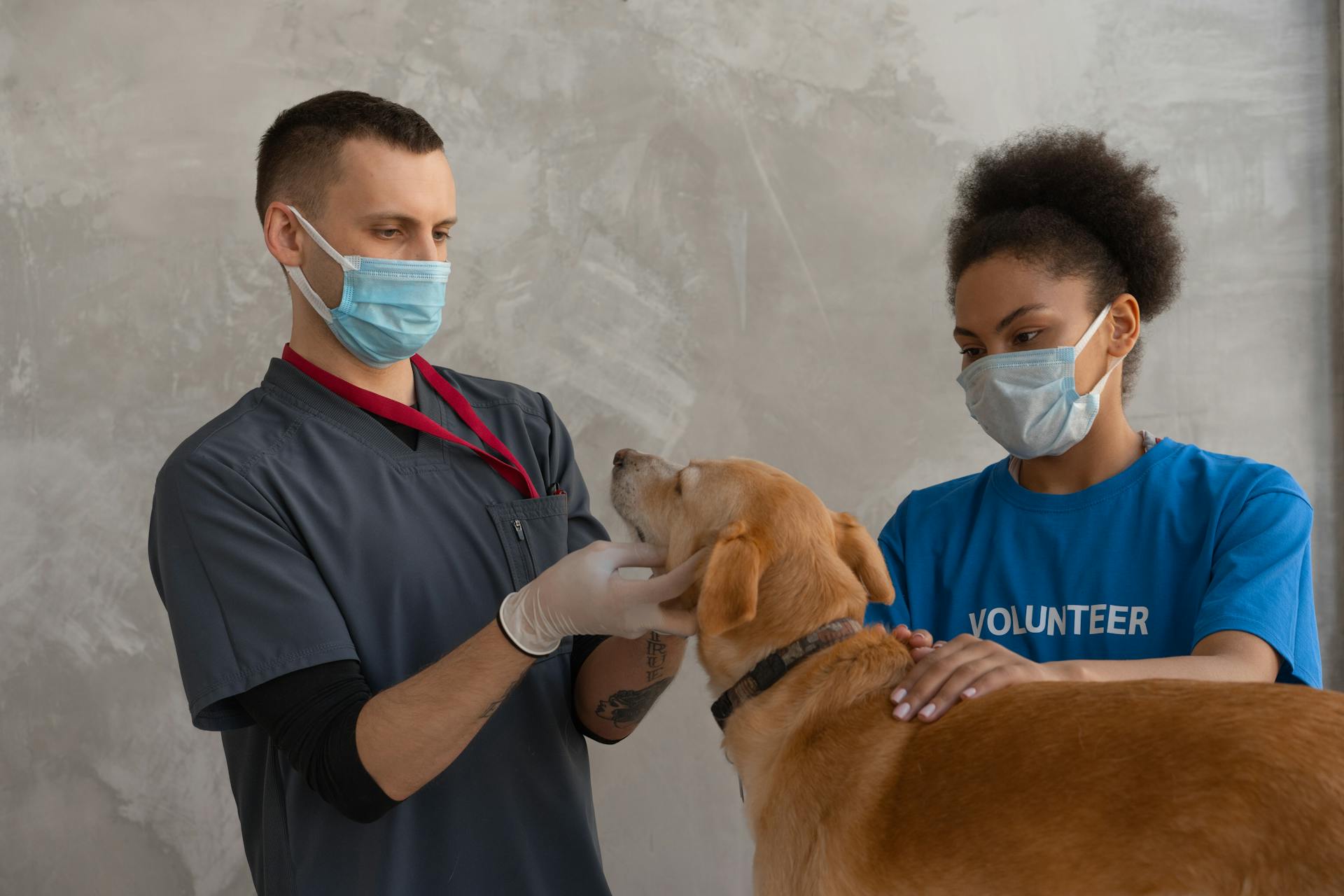
Dog euthanasia is a difficult decision, but it's often the most humane choice for a dog's final moments. The process typically involves administering a lethal dose of a barbiturate, such as pentobarbital.
The veterinarian will give the dog a sedative to calm them down before administering the euthanasia solution through an IV. This helps to reduce stress and make the process as painless as possible.
In some cases, a second medication may be given to ensure the dog's heart stops beating. This is usually done to prevent any suffering or discomfort.
The euthanasia solution works by stopping the dog's heart and brain function, causing them to lose consciousness and eventually pass away.
Additional reading: Home Euthanasia Service for Dogs
The Process
Your veterinarian will typically give your dog an injection of sedative before the euthanasia drug to help them relax. This shot may sting a little bit, and the drug can have side effects, so it's essential to discuss this with your vet.
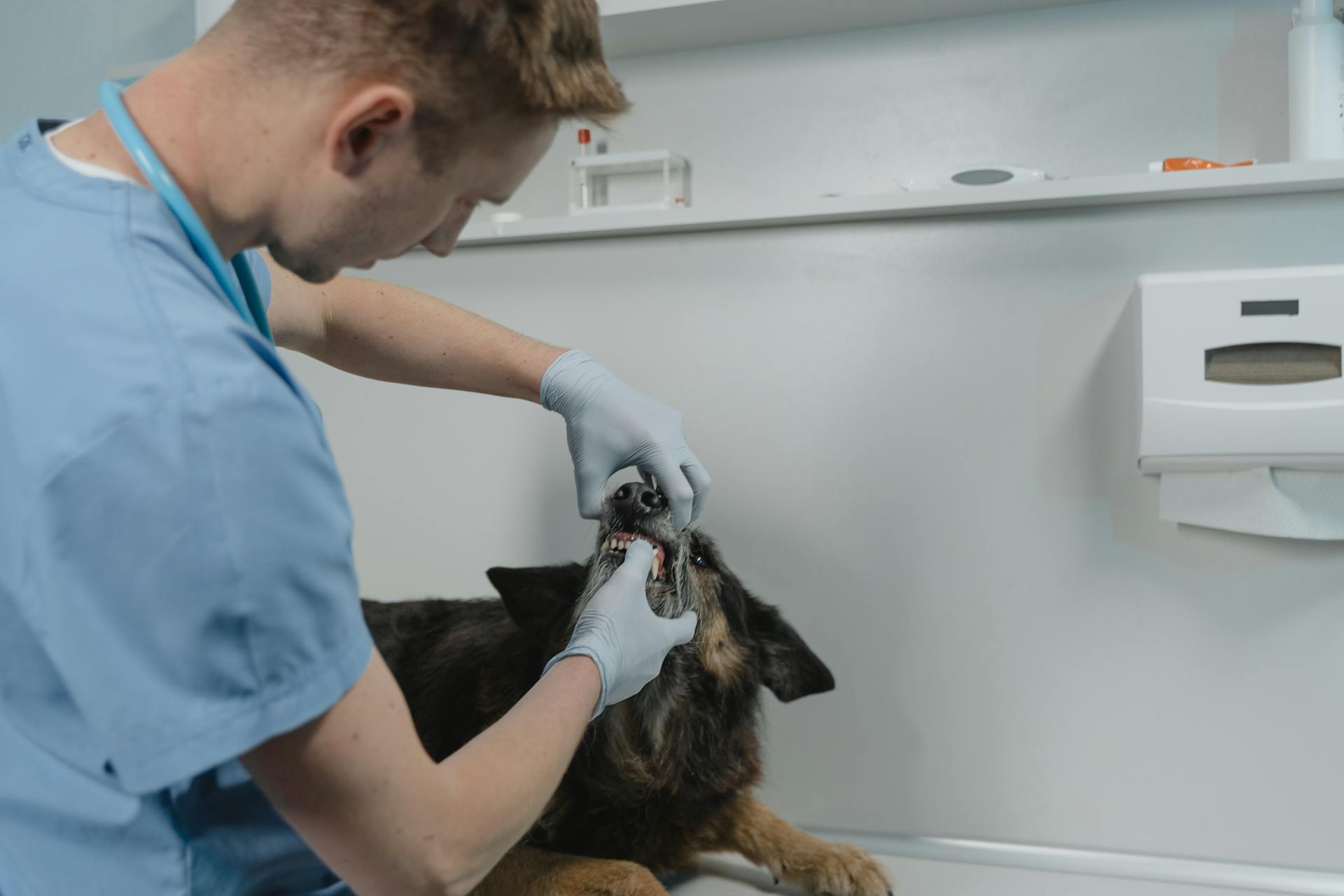
The euthanasia medication most vets use is pentobarbital, a seizure medication that quickly renders your dog unconscious. In large doses, it shuts down their heart and brain functions usually within one or two minutes.
The veterinarian may place an IV catheter into one of your dog's leg veins for direct access to the vein for giving the injection. This allows them to administer the euthanasia solution quickly and painlessly.
Your dog's eyes may not fully close after they pass, and they may urinate or defecate. This can be startling, but it's a normal part of the process and your dog isn't in pain.
Veterinarians Explain Process
Veterinarians will often give your pet an injection of sedative before the euthanasia drug to help them relax. This is usually done if your pet is frightened or can't calm down.
The vet will explain what they're doing and where they're giving the shot, so you'll know what to expect.
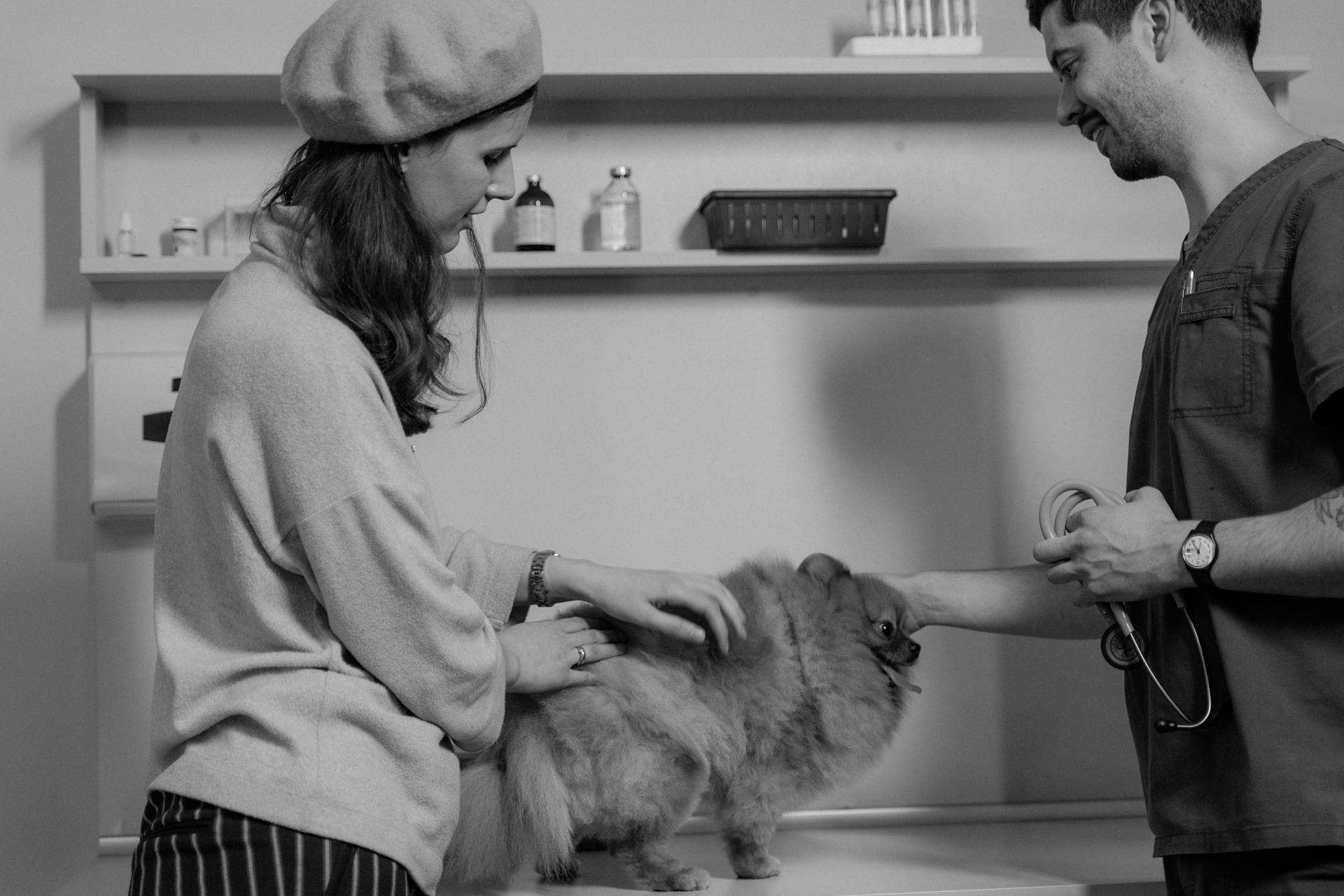
Some vets only use a sedative if necessary, and the shot may sting a little bit or have side effects.
If your pet is very sick and already quiet or has trouble breathing, they may not need the sedative.
The veterinarian may place an IV catheter into one of your pet's leg veins for direct access to the vein for giving the injection.
The euthanasia medication most vets use is pentobarbital, a seizure medication that quickly renders your pet unconscious.
It usually shuts down their heart and brain functions within one or two minutes when given in large doses.
Your pet will not be in pain during this process.
The vet will give the injection by IV in one of their legs.
You may see your pet urinate or defecate, twitch, or take a final breath after they pass, but this is a normal part of the process.
Their eyes may not fully close after they pass, which can be startling, but it's nothing to worry about.
Consider reading: Dog Shock Collar Not Working
Cost and Expectations
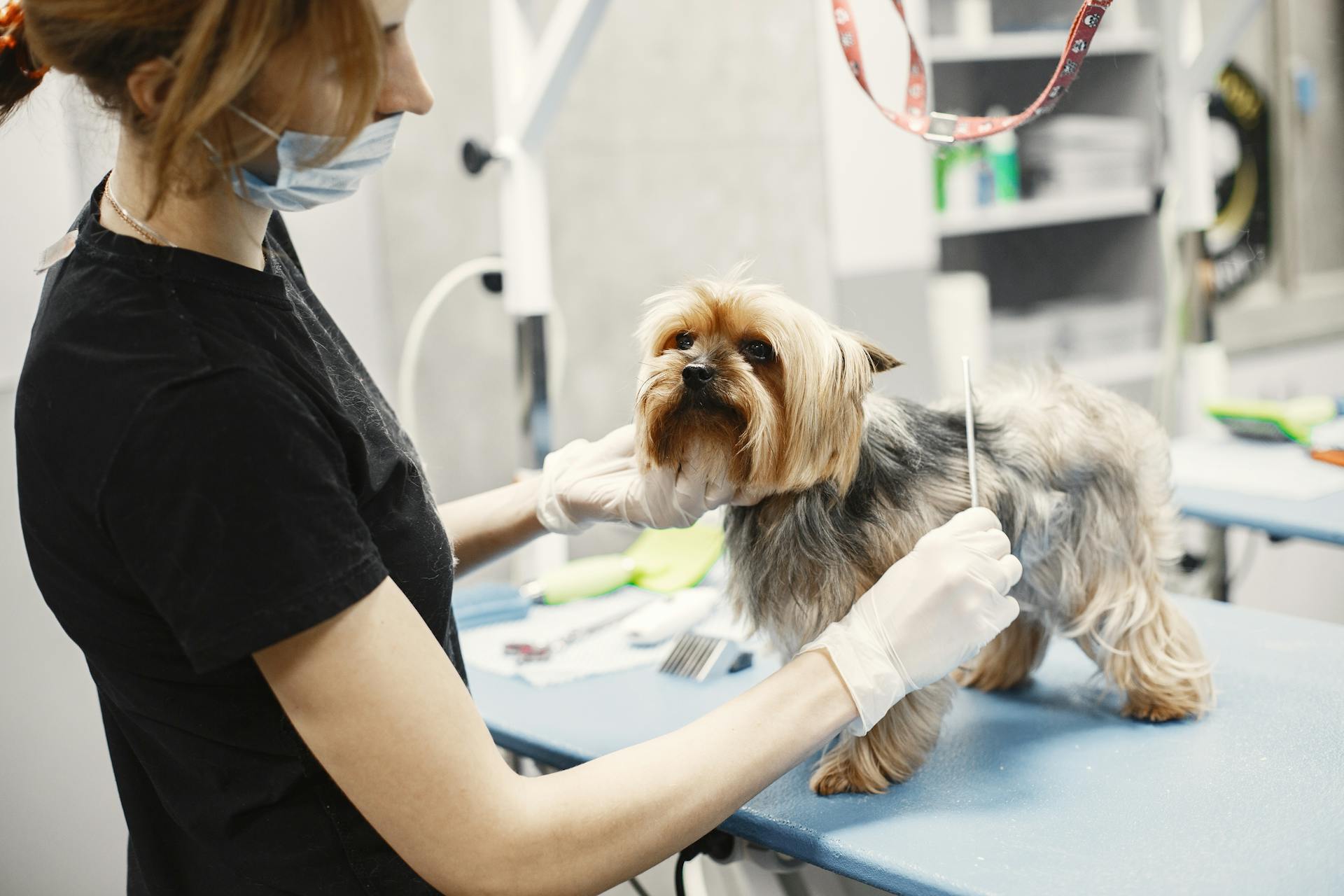
The cost of dog euthanasia varies depending on the location and the veterinarian's fees, but on average, it can range from $50 to $300.
In some cases, the cost may be covered by pet insurance, so it's essential to check your policy before making a decision.
The euthanasia process itself is usually quick and painless, taking only a few minutes to administer the medication.
If this caught your attention, see: Dog Dental Work Cost
What to Expect
As you prepare for a pet euthanasia appointment, it's essential to know what to expect. Your veterinarian will need access to a vein to administer the euthanasia solution to your pet. The euthanasia solution acts quickly and painlessly.
The process is usually relatively quick, taking only a few minutes to complete. Your veterinarian will guide you through the entire process and answer any questions you may have.
You can expect the euthanasia appointment to be a private and intimate experience, with your veterinarian's primary focus being on your pet's comfort and well-being.
How Much Does It Cost?
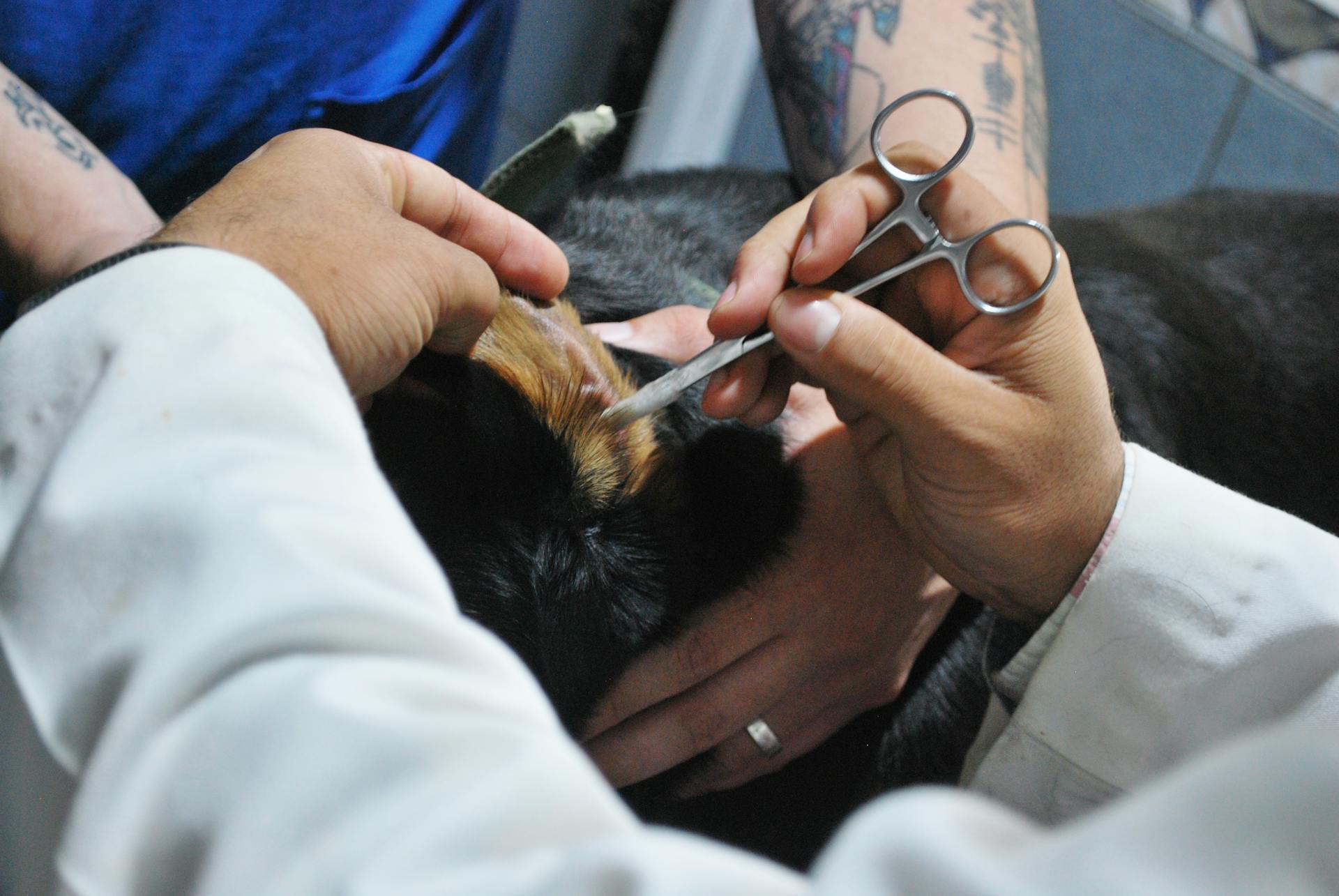
The cost of a home renovation can vary greatly depending on the scope of the project. A small bathroom renovation can cost anywhere from $8,000 to $20,000.
Most homeowners spend between 10% to 30% of their home's value on renovations. For a $200,000 home, that's $20,000 to $60,000.
The cost of materials can range from 30% to 50% of the total project cost. In a typical kitchen renovation, materials can account for around 40% of the total budget.
The labor cost for a renovation can range from 30% to 50% of the total project cost. For a bathroom renovation, labor costs can be around 40% of the total budget.
A renovation project can take anywhere from a few weeks to several months to complete, depending on the scope and complexity of the project.
For your interest: Cost of Blood Work for a Dog
The Injection
The injection is a crucial part of the euthanasia process, causing complete muscle relaxation and a quick and painless termination of all nerve transmission to the brain.
The euthanasia solution is designed to be administered quickly and painlessly, usually within 6 to 12 seconds after injection, resulting in the pet taking a slightly deeper breath, growing weak, and then lapsing into a deep sleep.
You can help hold your pet or cradle them in your arms at the time of euthanasia, and your veterinarian will try to accommodate your wishes.
The pet may continue to take a few more breaths and give a full body stretch before all movement stops, but this is a natural part of the process.
Some pets may lose bladder or bowel control in the immediate moments after death, but this is a natural effect of the body's relaxation process, not a conscious or fearful response.
The euthanasia solution is injected into the vein, and the veterinarian will try to ensure that this happens quickly and smoothly to minimize any discomfort for your pet.
Frequently Asked Questions
How long does it take for a dog to pass from euthanasia?
Euthanasia typically takes effect within a few minutes, with the pet's heart stopping after just a few deep breaths. This process is usually peaceful and painless, with the pet's body responding uniquely to the medication.
Do dogs know when they are about to be euthanized?
Dogs may sense that something is ending, but they don't consciously experience the euthanasia process due to the sedative effects of the first injection. The euthanasia process is typically painless and quick, but it's a good idea to discuss the details with a veterinarian.
Can dogs wake up from euthanasia?
No, dogs cannot wake up from euthanasia. However, owners may see movements or breathing-like actions after the euthanasia process, which can be a result of the body's natural reactions to the medication
Can dogs feel pain when being put down?
No, dogs do not feel pain when being put down as they lose consciousness immediately. However, the process is still a sensitive and emotional experience for pet owners.
What do vets do after they put a dog to sleep?
After euthanasia, your veterinarian will help clean and prepare your pet's body for your chosen aftercare method. This process typically involves gentle cleaning and removal of any medical equipment
Sources
- https://www.webmd.com/pets/what-happens-put-pet-to-sleep
- https://www.ydr.com/story/life/pets/blogs/ydr-pets/2014/09/14/veterinarians-explain-euthanasia-process/31722969/
- https://www.peacefulpassing.ca/questions-about-euthanasia
- https://www.petmd.com/care/pet-euthanasia
- https://en.wikipedia.org/wiki/Animal_euthanasia
Featured Images: pexels.com


